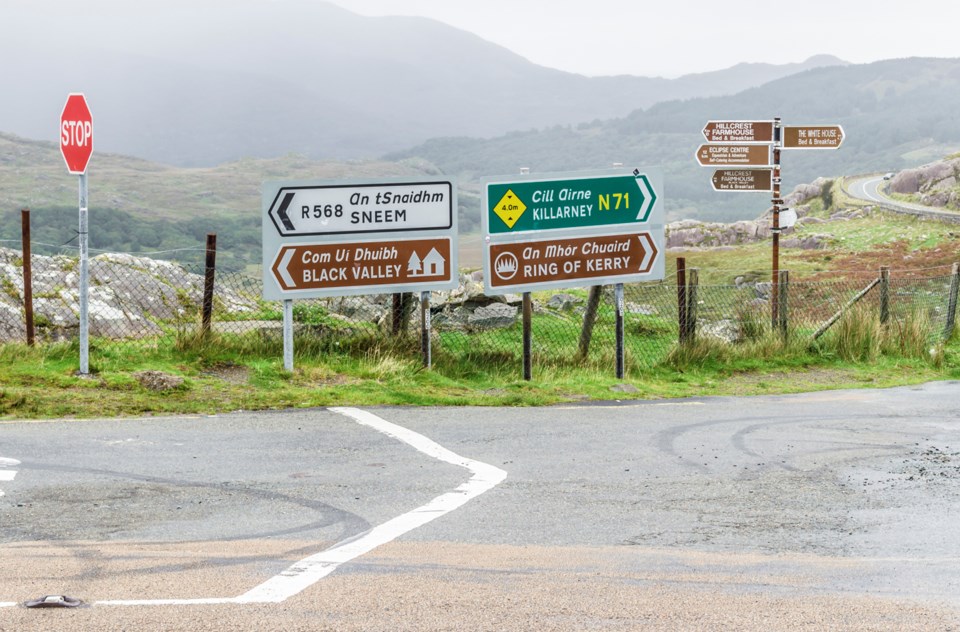Decolonization is a word we often hear in Canada today. In essence, it means to remove the colonial. That can mean different things to different people, and misconceptions often cause fear.
Perhaps finding a relatively successful example of decolonization in process can help us to understand the concept.
Ireland was one of the first countries colonized by Great Britain. Many methods for colonizing were tested out on the Irish, such as removing people from their land and bringing in settlers, imposing the colonial language, restricting cultural practices, and reducing the indigenous population. Many scholars point out that famine in Ireland in the nineteenth century was not simply the result of the failure of the potato crop, it was the result of British colonial policies. During the entire famine, food grown in Ireland was being exported, resulting in mass starvation. Some would even call this genocide.
British practices in Ireland were very similar to those used in India, Africa and North America. It is not a question of race, it is an issue of one nation trying to control another, and using any means necessary to do so.
The Irish resisted the British conquest and found ways to thrive as a people. In other words, they decolonized.
Language and culture played a significant role in helping the Irish to survive, and they also fueled the Irish cultural renaissance.
Perhaps the reason why the British and Canadian governments made such draconian efforts to eliminate Indigenous cultural practices in North America was because they had seen them play such a major role in maintaining the spirit of the Irish people. The Irish are known for their music and dance and these have always given voice to Irish heritage and to Irish resistance.
One also needs to acknowledge the role of the Catholic Church and Catholic institutions in resisting British culture, which was intermeshed with Protestantism. Catholic schools, for example, continued to teach Irish Gaelic, which was also celebrated in Irish song.
Perhaps the most humorous example of Irish resistance through music and language was the band Pogue Mahone, who had to shorten their name to the Pogues after British disc jockeys found out that they were telling the audience to “kiss my butt” in Irish each time they announced one of the band’s songs.
The Irish also used sport to not only resist colonization but to celebrate their unique identity. Gaelic football is quite popular in Ireland, and a version of the game was brought to Australia by immigrants, evolving into Australian Rules Football. The Irish also love hurling, called the fastest game on grass, which has ancient Celtic origins. Many say that there is nothing more Irish than the annual hurling tournament, the All-Ireland County Championship. One does not even need to understand the game to find this spectacle entertaining.
Clearly, Ireland has come into its own as a nation. After Brexit and a recent local election, it is even possible that the British territory of Northern Ireland will join with the Republic of Ireland in the not so distant future.
Of course, it is impossible for two situations on two separate continents to be identical. While the political situation in Ireland is completely different than ours in Canada, we can still learn from one another.
It has been a gift for all Canadians to see Indigenous language, dance and music rise in prominence. There is something soulful in a drumming circle that empowers and strengthens us all. One day we will have Cree and Dakelh immersion schools, and our Indigenous languages will experience the same renaissance as Irish Gaelic. In fact, this is already happening.
Over the centuries, the Irish have not only endured oppression, they have gifted the world with a model of decolonization by embracing and celebrating their language, culture and traditions.
They have proven that decolonization is nothing to fear, it is something to celebrate.
Gerry Chidiac is a Prince George writer.



